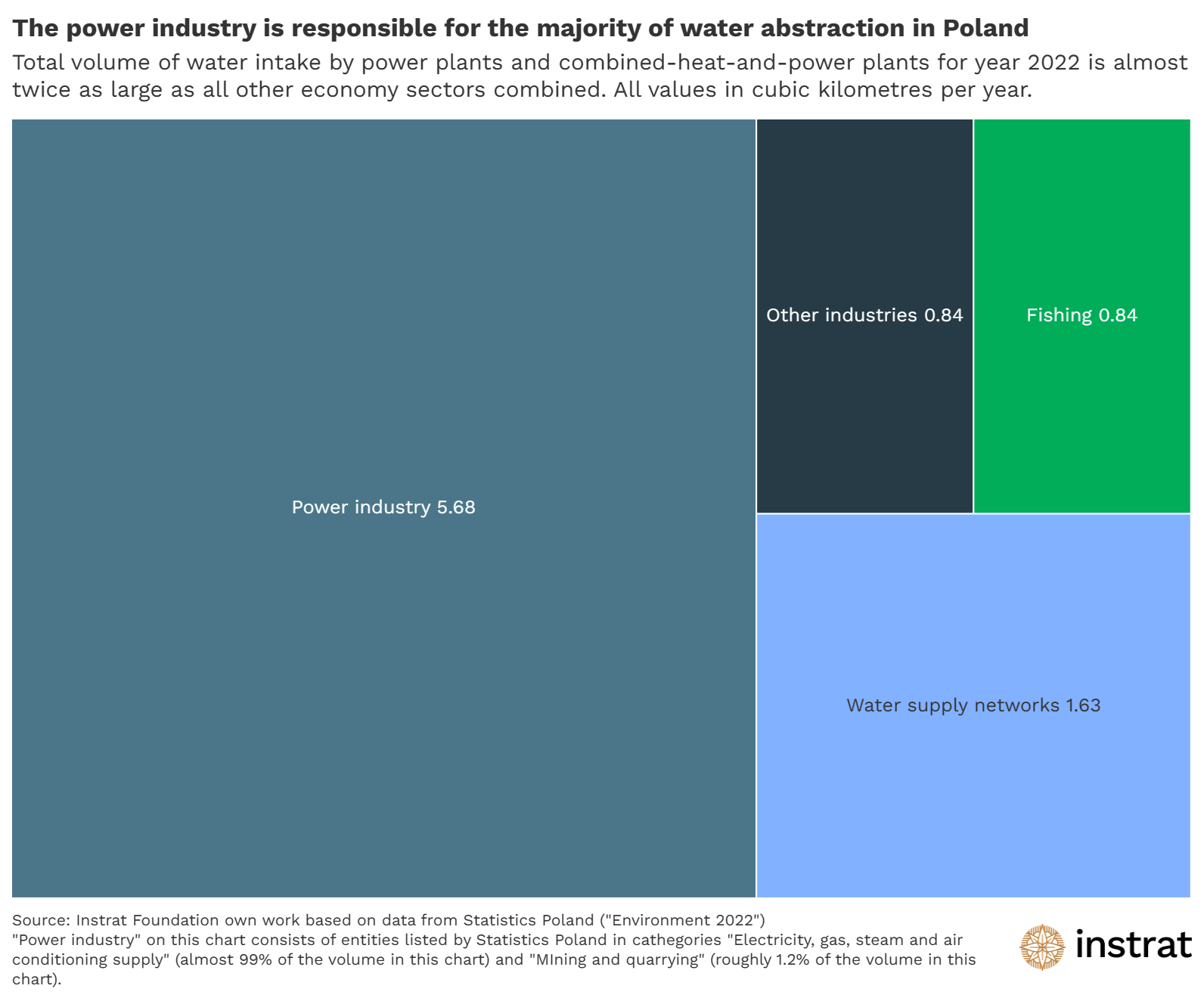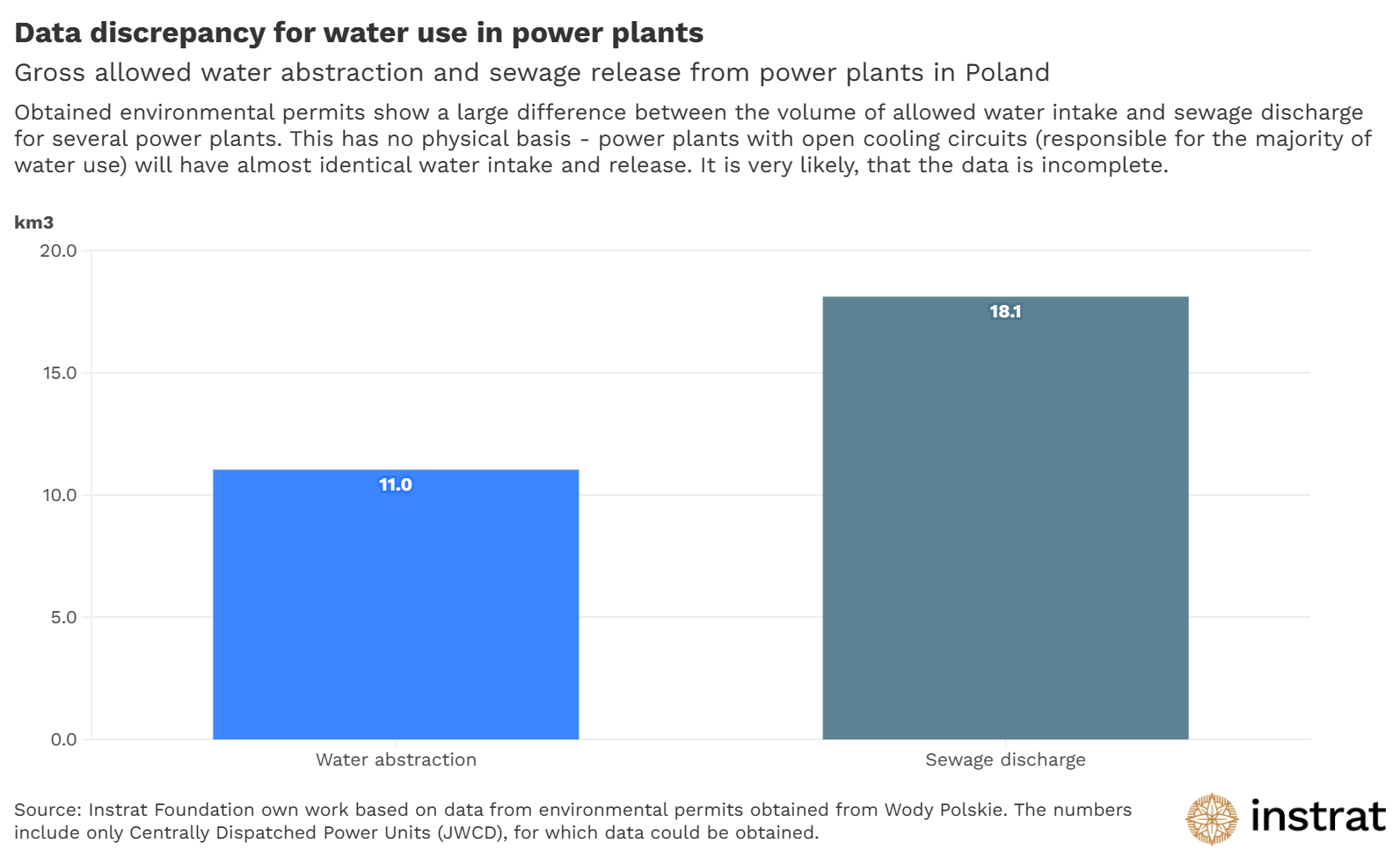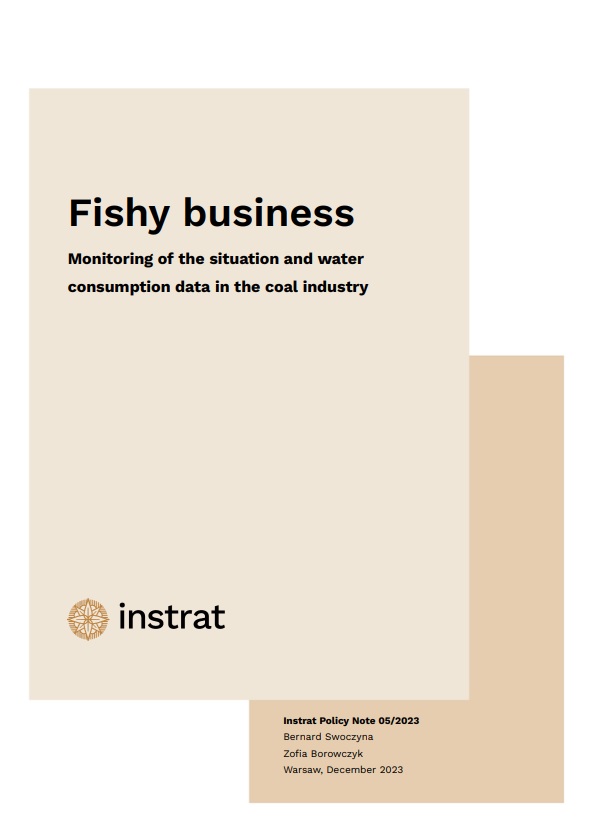Data from water permits and integrated permits are included in the database available here [LINK]
The Polish energy sector uses eight times more water than the volume of Śniardwy – the biggest lake in the country. As much as 96% of this water is not reused. The vast majority is used for cooling by coal-fired power plants. In a new report, Instrat experts show that water data in Poland is difficult to obtain and analyse. As a solution, they recommend that the government create a readable and publicly accessible database.
Coal mining and conventional energy sectors significantly impact the water environment
This can take place in several ways. One is the discharge of large quantities of salt or highly heated water into surface waters. Such wastewater can be discharged into rivers almost without limitation. “Wastewater with a high chlorine and sulphate content can be discharged into rivers almost without limitation provided that the final concentration in the river is not exceeded. In the case of large rivers such as the Vistula and Oder, this theoretically allows millions of tonnes of chlorides and sulphates to be discharged into Polish rivers in total every year,” – says Bernard Swoczyna, author of the report ‘Fishy business’.
The energy industry is the sector of the Polish economy that draws the most water from the environment. Unlike agriculture, which relies heavily on atmospheric precipitation, only a few coal-fired power plants with open cooling circuits are responsible for most of the industry’s water abstraction. In most cases, the body that issues water use permits and controls them is Wody Polskie. “The problem is that the permits received often differ significantly from the actual water consumption, which creates a danger for the environment,” – assesses the expert.

Problems with data
The data obtained by Instrat on water abstraction by mines and power plants does not represent the whole picture. For several power plants with open cooling circuits, the permitted water abstraction can be several orders of magnitude higher or lower than the permitted effluent emissions. For the Dolna Odra Power Plant, for example, the difference is almost 5 km3 per year. For Połaniec and Kozienice power plants, the difference is 2 km3 and 11 km3 per year respectively.
The situation is explained by Bernard Swoczyna: “These figures show an obvious contradiction. Power plants do not produce or evaporate several km3 of water per year. The water permits allow the abstraction and discharge of much larger quantities of water than is actually realised according to the GUS (Statistics Poland) data. The permits themselves are also contradictory because the amount of water withdrawn and the amount of effluent discharged, in the case of open-cooling power plants, should be almost at the same level.”

Next steps
Water data in Poland is split between different government agencies and their regional branches. Difficult procedures for obtaining the information and the way it is presented make it difficult to analyse. The data can be obtained as scans of hard copies of documents, but this can take several months to obtain. Data analysis within environmental agencies is also inefficient due to the heavy workload of staff and incomplete information.
Therefore, Instrat recommends that the government create a complete and publicly available water use database that reports on water use by industries. The data should be comprehensive, easily accessible and published in a readable format on the data.gov.pl platform.
“The quality, transparency and availability of water data are crucial for effective environmental protection. It is information that is not only important for scientists, environmental agencies and international organisations, but also for engaged citizens. Therefore, they should be available to the public, free of charge and published in a format that allows for automated retrieval and processing,” concludes Maria Włoskowicz, lawyer at the Frank Bold Foundation, which works to protect people and the environment.


